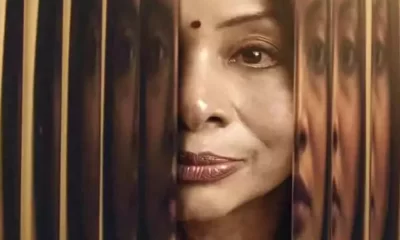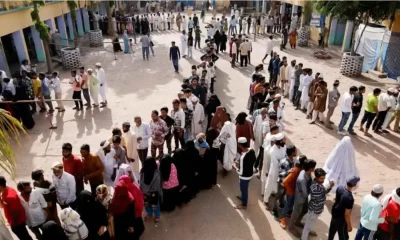India News
Gujarat 2002’s victim Bilkis Bano wants her daughters to grow up in a safe India
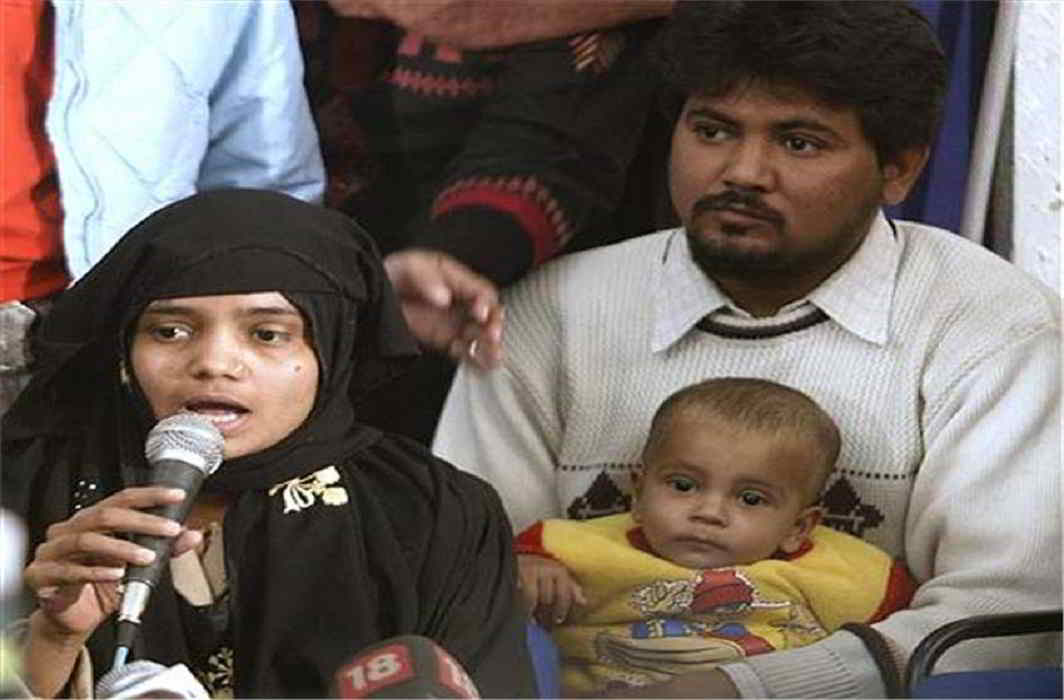
[vc_row][vc_column][vc_column_text]Bilkis and her family have moved house over 20 times. The new threat to their livelihood is posed by gau rakshaks, says her husband.
By Rashme Sehgal
The Bombay High Court judgement on the Bilkis Bano case is historic as this is the first time that police impunity in criminal action has been acknowledged by the judiciary. State officials, including police and doctors, have been indicted for their role in aiding and abetting the most heinous of crimes.
The convicted policemen and doctors are Narpat Singh, Idris Abdul Saiyed, Bikabhai Patel, Ramsingh Bhabhor, Ramanbhai Bhagora, Dr Arun Kumar Prasad and Dr Sangeeta Kumar Prasad. They have received a sentence of three years imprisonment with each of them also expected to pay a fine of Rs 20,000 within eight weeks
On March 3, 2002, 19-year-old Bilkis Bano fled her village along with her father, mother and other members of her family in a truck because their homes had been burnt down by Hindutva mobs following the alleged burning of a coach of the Sabarmati Express at Godhra, which resulted in the death of 56 people. The truck was stopped by an armed mob of rioters in Randhikpur village near Ahmedabad where not only did a mob gangrape a five-month pregnant Bilkis but went on to kill 14 members of her family including her two-year-old daughter and her ageing mother.
The most shocking aspect of this killing was how the bodies of Bano’s relatives were beheaded and then buried by the police in unmarked graves, which, in turn, were filled with what has been reported to over 90 kg salt to ensure quicker decomposition. The body of Bano’s daughter, Saleha, was never found.
Bilkis has suffered a long, arduous journey to secure justice. Following the rape, she approached the Limkheda police station, where officials reluctantly filed a FIR but did not name the rapists, whom Bano had identified. In fact, all three rapists were known to her with two being in their early 50s. Her family used to sell milk to them and as she tried to flee from them, she said, “Why are you doing this to me. I know you and have been like a daughter to you.”
The judicial magistrate closed the case on the basis of inputs by the Gujarat Police who claimed they had found several “inconsistencies” in Bano’s version.
Bano appealed to the National Human Rights Commission, who, in turn, asked Harish Salve to represent her case before the Supreme Court. A CBI inquiry was ordered as also action against the Gujarat Police officers for effecting a cover-up. Since Bilkis and other witnesses were facing harassment, the Supreme Court transferred the case to Mumbai.
It was only in 2004 that the CBI arrested 12 accused people and found the Gujarat Police complicit in the cover-up. As she and other witnesses faced threats continuously, the Supreme Court also appointed a public prosecutor on Bano’s request.
On the basis of the CBI chargesheet, which named 20 people including six police officers and two government doctors as the accused, and the cross-examination of 73 witnesses, the Mumbai sessions court found 12 people guilty but acquitted five police officers and the two doctors. But the Bombay High Court went a step further and on May 4 this year, it upheld the life sentence to the 11 surviving convicts by the lower court, thereby vindicating all she had said from the start.
Speaking at a press conference in New Delhi, Bano and her husband Yakoob Khan welcomed the judgement. “We are happy with the judgement of the Bombay High Court. My family is also happy. We are happy that the police and doctors have been found guilty. They must be punished,” she said.
“We have had to undergo a lot of sufferings. We want to start afresh. We want to educate our children. Such has been our experience in the last 15 years that our eldest daughter wants to become a lawyer now,” Bilkis Bano said.
Yakoob, who sat next to her during the press meet, was holding their young daughter. “Although our journey for justice has been longdrawn, our faith in the Indian judiciary had been re-established. We are relieved now. I also hope that, like Bilkis, rape survivors of all communities should get justice,” he said.
Elaborating on the challenges she faced over the last 15 years, Bilkis said, “We have faced many threats during our struggle for justice. The Sessions Court gave parole to the accused, who would come to our village to threaten us. They would hold meetings in the village to try and intimidate us.”
Since the 2002 riots, Bano and Yakoob have moved homes at least 20 times while trying to find refuge in Mumbai, Pune, Ahmedabad and Vadodara. Each change of address meant a change in their children’s schools. They had to take their young children with them, every time they had to make a court appearance in Mumbai, where Bano’s case was shifted once the CBI found evidence of the Gujarat Police’s complicity in the cover-up.
While the Bombay High Court directed that the fine money imposed on the accused be given to Bilkis, the sad reality is that there is no government mechanism to compensate survivors of communal violence.
As Bilkis said at the press meet that she has not received any help from either the state or the Central government. But she was insistent on one point. “No one from the government has met us in the last 15 years but today, I am grateful to the judiciary. I feel justice has been served. Mujhe insaaf chahiye, mujhe badla nahi chahiye ( I want justice, I do not want revenge). I want my daughters to grow up in a safe India,” she said.
Activist-writer Farah Naqvi pointed out, “Bilkis Bano in her writ to the Supreme Court filed in 2004 had asked for compensation. But amongst the list of injuries that the government offers compensation for, social violence has not even been acknowledged. The result is that Bilkis received Rs 1.75 lakh for the death of her daughter as did her father and other members of her extended family for the loss of their family members, this is all Bilkis has received.”
She called for a national policy with standard norms of compensation to be paid for victims of social and communal violence, which can at least help them fight their legal battles.
Bilkis’ lawyer Vijay Hiremath from Mumbai pointed out that there is no clarity among states on the quantum of compensation to be paid to victims of violence. In 2016, the Supreme Court directed that all states come up with a scheme as to how much compensation they were willing to offer but this has been primarily compensation for rape victims.
“While Maharashtra is offering Rs 3 lakh, the state of Goa has announced a compensation of Rs 5 lakh. But Bilkis cannot lay claim to this only because this is not being applied retrospectively,” Hiremath said.
The Lucknow-based Madhavi Kuckreja, who has worked closely with a team of activists to provide support to Bilkis, regrets the lack of a clear policy in a country which is facing a rising graph of communal incidents.
“While the UP government has announced a policy to compensate acid victims, nothing is given to riot victims who often face physical violence and are also victims of displacement. Following the riots in Muzaffarnagar, victims there were given Rs 5 lakh to build new homes but this is not the norm,” she said.
The accused in the Bilkis Bano case are expected to file an appeal in the Supreme Court. Meanwhile, Bilkis and Yakoob hope they can lead a more settled life in future. This will not be easy. Their families are in the cattle rearing and trading business which has been facing increasing threats from gaurakshak groups in Gujarat.
“Our traditional business has always been cattle-rearing and trading. But now we are being seen as butchers. We fear getting attacked all the time just for doing our job. We have to figure out what we will do in the future,” Yakoob said.[/vc_column_text][/vc_column][/vc_row]
2024 Lok Sabha Elections
Lok Sabha Elections: Voter turnout 62.02% in Tamil Nadu till 5pm
The voter turnout in Tamil Nadu stands at 62.02%, while Uttar Pradesh records a turnout of 57.5%. Meanwhile, in West Bengal, voter participation surges to 77.5% as of 5 pm.
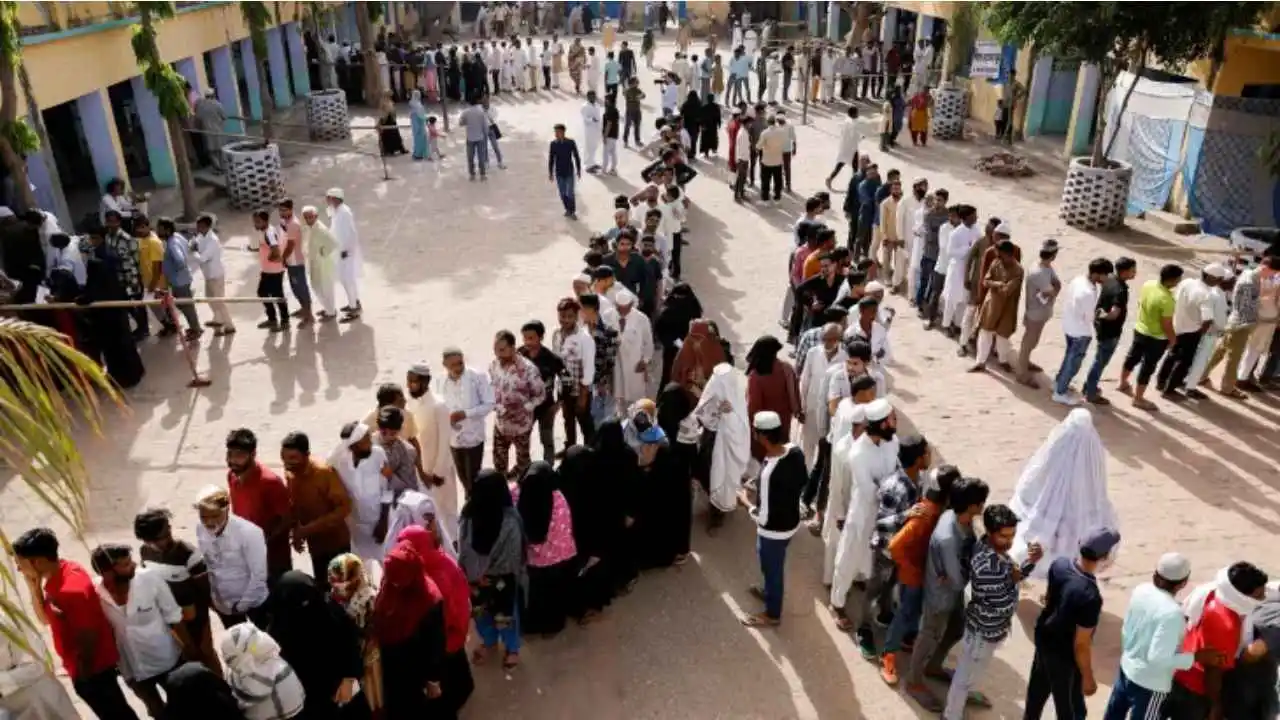
The Lok Sabha elections 2024 began today, marking the onset of the world’s largest electoral event. Voting ended in all 39 Lok Sabha constituencies in Tamil Nadu with a total voter turnout of 62.02%. State BJP chief and Coimbatore Lok Sabha constituency candidate K Annamalai said, they were getting complaints from a large number of voters that their names were missing from the voters’ list.
This incident happened in many places. Annamalai said they are demanding re-poll in places where the names of a large number of voters were missing.He said they had a doubt that there was some political interference because the names of a large number of BJP caders were missing from the voters list.
The voters in South Chennai showed lukewarm interest to participate in the election process and had a total voter turnout of 57.04% till 5pm. Although the overall percentage is poor, some areas like Thiruvanmiyur witnessed brisk polling from 7am onwards. Elderly, middle aged and young voters turned up and it was a family outing for many as they cast their vote.
Corporation volunteers assisted senior citizens with wheelchairs and guided them to their respective polling booths. The hot weather also had an impact on the polling as it reduced the voter turnout as many booths in the corporation school in MGR Nagar were seen deserted around noon. Senior citizens showed courage as they reached the polling booths in private vehicles to exercise their franchise.
Most of the polling booths had shamianas for voters so that they could wait in a queue. Some people even found refuge in the nearby buildings to save themselves from the scorching heat. The polling officials gave instructions to the voters to keep their phones switched off while they exercised their franchise. The security personnel at the polling booth also regulated traffic outside the polling booth in MGR Nagar.
2024 Lok Sabha Elections
Deserted by key supporters, the Kamal Nath story looks set to wind to an end in Chhindwara
Nath’s closest allies in his near 50-year reign—Deepak Saxena and Kamlesh Shah—have deserted him. His local team of corporators has also decided to jump ship leaving a gaping hole in Nath’s campaign trail.
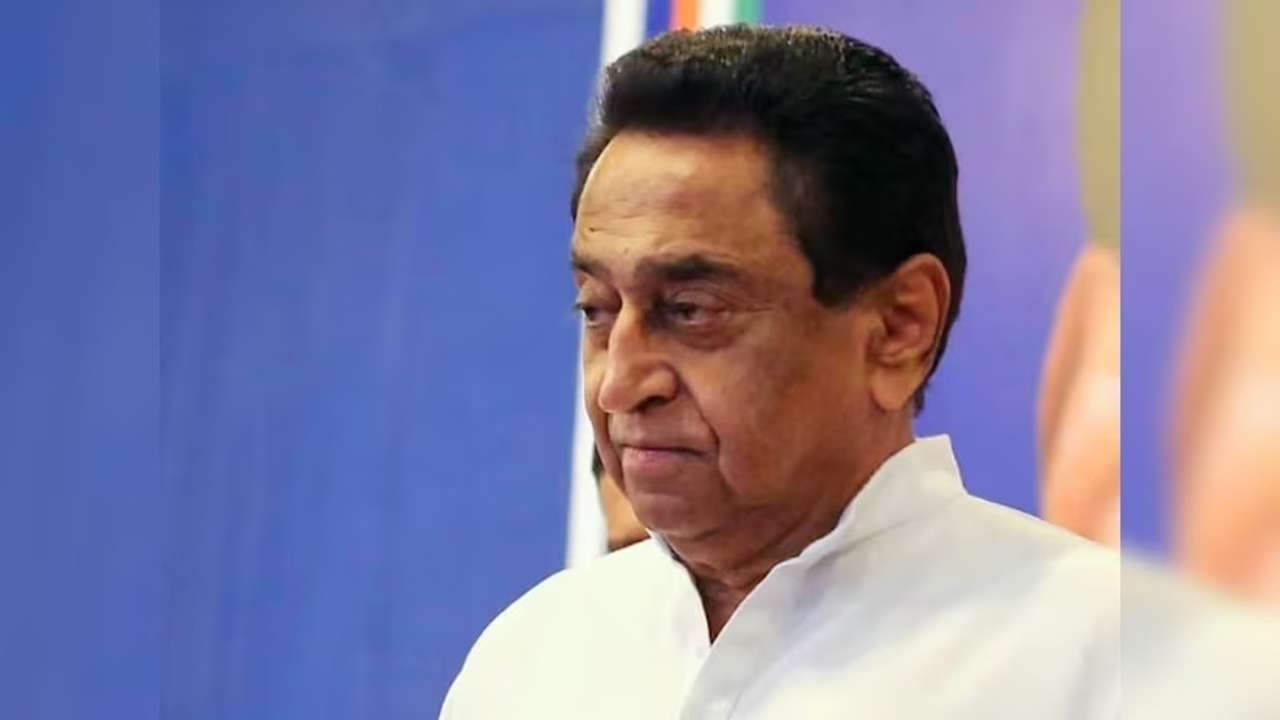
By Neeraj Mishra
The Congress has lost Chhindwara only once since Independence when the wily Sunderlal Patwa was sent there by Atal Bihari Vajpayee to test Kamal Nath’s hold on the constituency. Patwa won the 1997 by-election by a slim margin in the backdrop of Nath having forced his wife to first contest and later vacate the seat for him. Nath, however, returned to his winning ways the very next year and has won the seat nine times.
It seems possible that Chhindwara, the lone surviving Congress seat, will be lost again this time and may be forever. A day ahead of polling, the town was drowned in saffron. Not so much the effect of vigorous campaigning by Vivek Sahu of the BJP but the Ram Navami festival which brought out saffron flags on every rooftop. The effect is likely to last since the polling is today. At 77, Nath is unlikely to contest another election here and his son Nakul seems like a pale shadow of his father unable to even make a forceful speech. The days of running Chhindwara from Shikarpur kothi are gone.
Nath’s closest allies in his near 50-year reign—Deepak Saxena and Kamlesh Shah—have deserted him. His local team of corporators has also decided to jump ship leaving a gaping hole in Nath’s campaign trail. Nakul had won by a margin of 37,000 votes in 2019 and the biggest lead had come from Kamlesh’s Amarwada Assembly segment. With Saxena in control of Chhindwara and forced to show his strength in his new party, it is highly likely that Nakul will not be depending on these segments. Instead, the Congress campaign was focused on Pandhurna, Parasia and Chaurai.
Amit Shah was in the region a couple of days ago and warned all BJP workers—old and new—against lethargy. His message was clear, the BJP wants all 29 seats this time. Cabinet Minister Kailash Vijayvargiya is camped here and using all his political acumen for the desired results. One such tactic was to raid the Shikarpur Kothi of Kamal Nath for his assistant Miglani who handles almost everything for him. With Miglani temporarily neutralised, BJP is best placed to repeat its win in Chhindwara in 1997.
2024 Lok Sabha Elections
Lok Sabha Elections 2024: Nearly 40% voter turnout till 1pm
Chennai recorded an average voter turnout of 34% as of 1 pm on Friday. According data released by the Election Commission of India, Chennai (North) recorded 35%, Chennai (Central) recorded 32.3% and Chennai (South) recorded 34%.
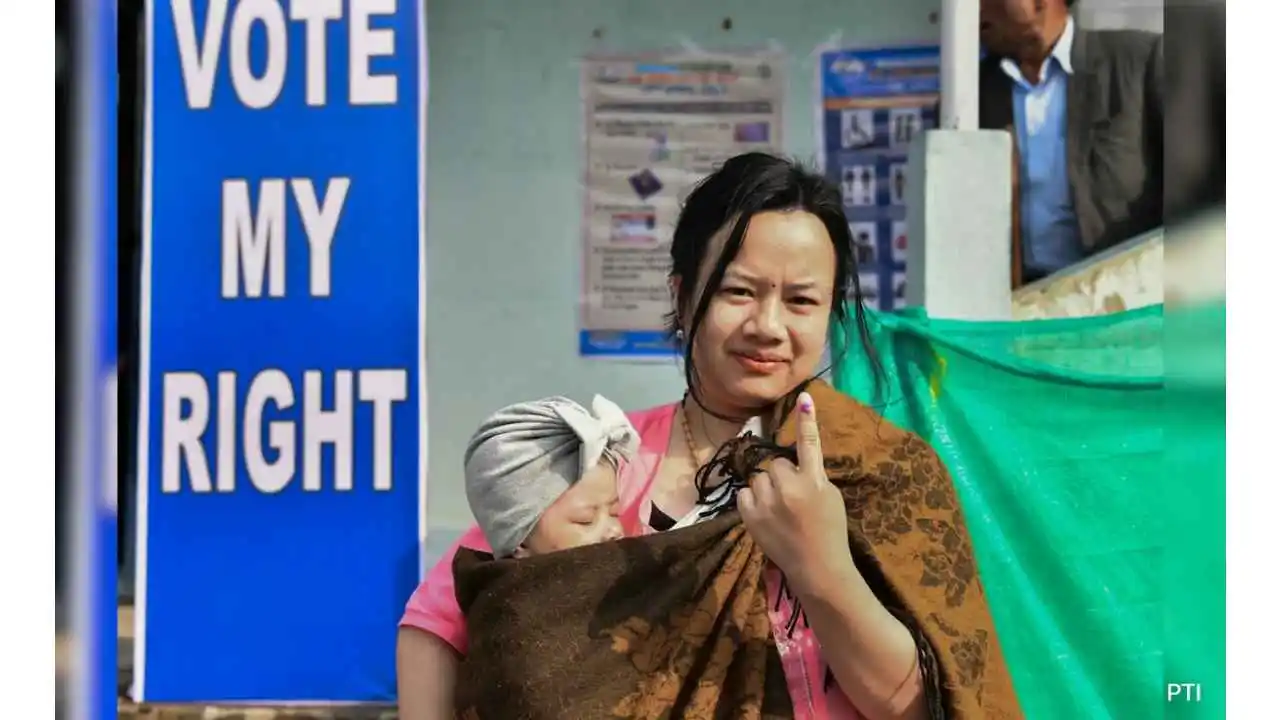
The first phase of voting for the 18th Lok Sabha elections started taking place in 21 states and Union territories on Friday. Nearly 40% voter turnout was recorded till 1pm across the states. Seats in Assam, Arunachal Pradesh, Chhattisgarh, Bihar, Maharashtra, Madhya Pradesh, Manipur, Mizoram, Meghalaya, Rajasthan, Nagaland, Tamil Nadu, Sikkim, Uttar Pradesh, Tripura, West Bengal, Uttarakhand, Jammu and Kashmir, Andaman and Nicobar Islands, Lakshadweep and Puducherry go to elections on Friday.
There has been a substantial increase in the voter turnout charts across the Northeast states, with Tripura leading at 53.04% until 1 pm, as per the data released by the Election Commission of India. Other northeast states like Manipur (46.92%) and Meghalaya (48.91%) are also witnessing high voter turnout. After Tripura, West Bengal is experiencing a high voter turnout of 50.96%.
Chennai recorded an average voter turnout of 34% as of 1 pm on Friday. According data released by the Election Commission of India, Chennai (North) recorded 35%, Chennai (Central) recorded 32.3% and Chennai (South) recorded 34%.
Over 33% voter turnout was recorded in the first 6 hours of voting on Friday in 12 parliamentary constituencies of Rajasthan. According to the Election Commission, voting started at 7 am amid tight security arrangements and 33.73 % voting took place till 1 pm. The highest voter turnout of 40.72 % was recorded in the Ganganagar Lok Sabha seat while Karauli-Dholpur saw the lowest turnout of 28.32 %. Jaipur recorded a poll percentage of 39.35 %.
Over 37 % voter turnout was recorded till 1 pm in the Lok Sabha election being held for five parliamentary constituencies in Uttarakhand on Friday. Elections began at 7 am and the five constituencies recorded an overall poll percentage of 37.33 % up to 1 pm. The Nainital-Udham Singh Nagar seat recorded the highest turnout of 40.46 %, followed by Haridwar with 39.41%, Pauri Garhwal with 36.60 %, Tehri Garhwal with 35.29 % and Almora with 32.29 %.
-
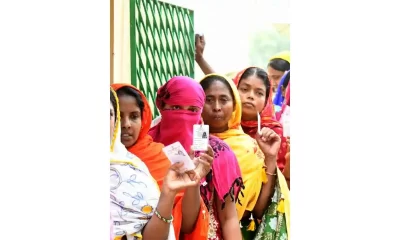
 2024 Lok Sabha Elections17 hours ago
2024 Lok Sabha Elections17 hours agoPrime Minister Narendra Modi urges citizens to vote in record numbers as voting for first phase of Lok Sabha elections begins on 102 seats across India
-

 Entertainment12 hours ago
Entertainment12 hours agoDo Aur Do Pyaar social media review: Social media users say Vidya Balan, Pratik Gandhi deliver standout performances in this adorable film
-
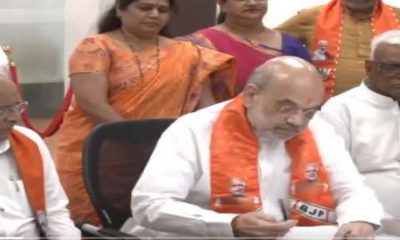
 2024 Lok Sabha Elections13 hours ago
2024 Lok Sabha Elections13 hours agoLok Sabha elections 2024: Amit Shah files nomination from Gandhinagar
-
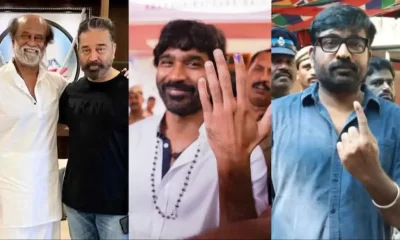
 2024 Lok Sabha Elections16 hours ago
2024 Lok Sabha Elections16 hours agoKamal Haasan, Rajinikanth, Vijay Sethupathi, Dhanush vote in Chennai
-

 Entertainment14 hours ago
Entertainment14 hours agoYami Gautam starrer Article 370 releases on Netflix today
-
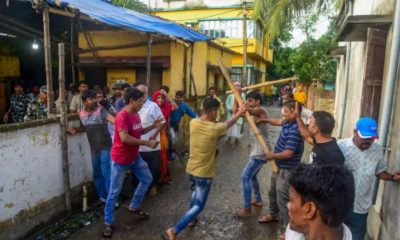
 2024 Lok Sabha Elections16 hours ago
2024 Lok Sabha Elections16 hours agoLok Sabha elections 2024: TMC, BJP workers clash in West Bengal’s Cooh Behar ahead of voting
-
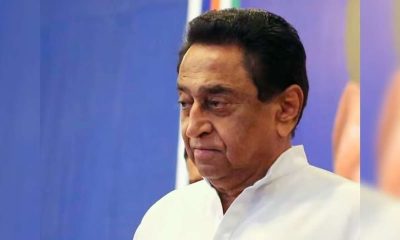
 2024 Lok Sabha Elections9 hours ago
2024 Lok Sabha Elections9 hours agoDeserted by key supporters, the Kamal Nath story looks set to wind to an end in Chhindwara
-

 2024 Lok Sabha Elections16 hours ago
2024 Lok Sabha Elections16 hours agoLok Sabha elections 2024: Google Doodle marks the start of polls with index finger voting symbol



